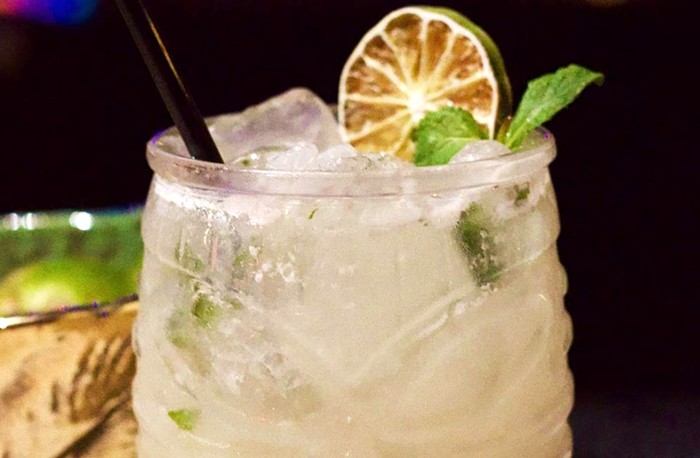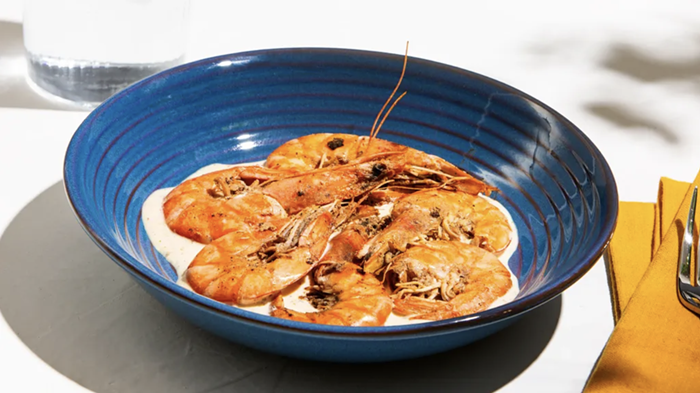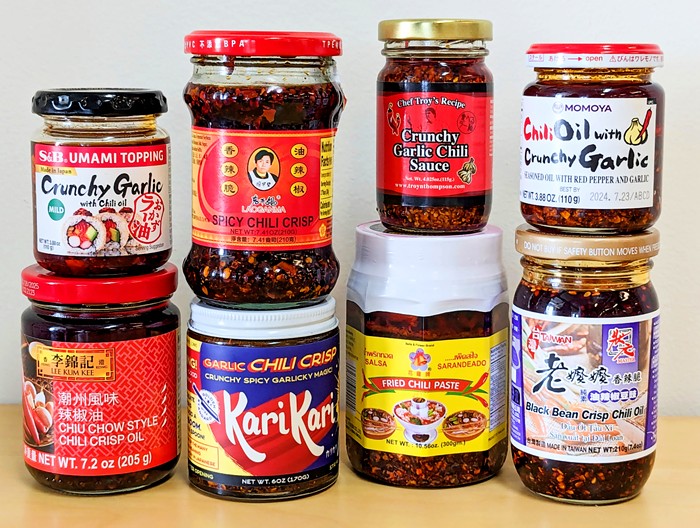Donna Moodie grew up the daughter of Jamaican immigrants in the predominantly black South Side of Chicago. Although there wasn't much space, their house was open to anyone—all because of her mother, Marjorie.
"My mom would be out at the bank, and the bank teller would tell her that she was new to town," recalls Moodie. "So my mom would say, 'Come over for dinner.' The woman would come over, and then they'd be friends for 20 years.
She would always invite a ton of people. People would sit on the floor with plates on their lap—but there was always room for one more."
When Moodie first opened her restaurant, Marjorie, in Belltown in 2003, she hoped to emulate the way her mother entertained. She wanted to create a place where everyone felt welcome and the menu, like her mother's cooking, was unified not by one type of cuisine but by a curiosity about the world and its many flavors.
Twelve years later—and five years after moving the restaurant from its original Belltown location to a freestanding, single-story building on Capitol Hill—Moodie is keeping that spirit alive. Every night of the week, you'll find a diverse crowd of regulars and new customers filling its small dining room, tiny bar, and remarkable patio, where you can almost forget that you're on Capitol Hill. It's a place where everyone feels (and is treated) like family, where you can just show up and trust that you'll be taken care of.
We started, as almost everyone does, with the restaurant's signature dish, Miss Marjorie's steel drum plantain chips ($12)—thinly sliced and perfectly crispy, sweet, and savory. Their curved shape makes them the ideal vehicle for scooping up the accompanying creamy mash of avocado and pineapple, spiked with spicy and salty chaat, as well as citrusy slivers of halibut ceviche ($6).
Eating plantain chips and drinking one of Marjorie's house cocktails (very strong—"basically doubles," our server said with a knowing smile) while sitting outside on Marjorie's patio, elbow-to-elbow with other happy adults, is one of the best things you can do on a Seattle summer evening.
A big bowl of local Manila clams ($14), served in a white-wine broth that's rich with butter, was light but also satisfying, especially with an extra serving of grilled bread to sop up all the liquid. But I most enjoyed the dish's extra touches: slices of lemon, briny sea beans, and bitter dandelion greens from Present Tense Farm.
Vietnamese-style chicken wings ($12) were thickly coated in a bright cilantro-lime paste and topped with crushed peanuts and potent Thai chilies that hid among the dressings like little mines of heat. While the flavors of this dish are wonderful, including the cooling fluorescent-yellow turmeric yogurt sauce underneath, the texture was disappointing. Although the wings had been marked on the grill, they lacked any real crispiness or crunch, which made chewing through their flaccid skin a drag.
Textural flaws were also present in an entrée of pan-seared Neah Bay king salmon ($30) that, while cooked to a beautiful, soft-centered medium rare, lacked the essential crackly browned layer that comes from a good, hot sear. The dish was served with silken confit fennel, its anise flavor lovingly mellowed after a slow, luxurious bath in oil, and an airy foam made with preserved lemon.
Less successful, though, were the odd pink turnip puree underneath, which tasted a little bitter and gassy, and the matchsticks of raw radish and turnip excessively scattered on top. (It's worth mentioning that entrées at Marjorie are not cheap, but if you're willing to share, you can easily put together a filling meal with a few of the smaller plates and starters, the portions of which are generous.)
While Moodie contributes ideas to the menu, she sees her culinary role as more of a curator, and she has always left the cooking to someone else ("I'd miss talking to people and would probably burn a lot of food"). As such, Marjorie is an interesting type of restaurant, one that doesn't live or die by its chef.
According to Moodie, people can always expect an eclectic menu of locally sourced, sustainable ingredients, pasta made in-house, warm service, scratch cocktails, and, of course, plenty of plantain chips. Given that, she says, "A chef's run here is like a show. I like to encourage creativity and let chefs play with what we have, and then expand on it or add their own style that may linger for a while after they've gone."
Right now, under chef Challisa Parisi, who cooked at Thomas Keller's Bouchon in both Yountville, California, and Las Vegas, Marjorie's menu is getting an infusion of classical French technique and local ingredients. Parisi, who Moodie describes as "pretty enamored with the farm thing," has expanded Marjorie's purveyors to include more than five local farms and is bringing in other Pacific Northwest ingredients like those foraged sea beans. While the food is not without some problems, Parisi has been in charge of the kitchen only since April, so she's likely still finding her rhythm.
The thing is, Marjorie's food wasn't the part that left the strongest impression on me. More than anything, the restaurant feels like a dinner party at a good friend's home. There's a record player in the bathroom (I put on a Hugh Masekela album for my husband before I left so he could enjoy it when he came in after me—the equivalent of a love note on the bathroom mirror), a Basquiat print overlooking the restaurant like some sort of guardian angel, a chandelier-esque sculpture made of dozens of silver whisks that Moodie was gifted by a friend, small paintings and drawings Moodie acquired during her extensive travels through India, and a framed picture of Martin Luther King Jr. that she picked up at a street fair in New York City. "It's all basically what you would find in my home," she says.
While the restaurant is an extension of Moodie's home and identity, people don't always see that. She tells me about the many times over the years that someone has shown up at her restaurant for an interview or some other business and walked right by her, never once thinking she might be the owner.
"There's an expectation that a black woman isn't going to own a restaurant that serves a variety of cuisine—not just soul food, not just Jamaican food," she says. "And not a place that has a bistro feel and excels in decor and design."
But that's exactly why she continues running Marjorie: "Those are the suppositions that create some of the tensions that we have currently in our entire society. I participate in change by having someone come in and rethink what they might have thought just by being here."
It's one of many things that makes Marjorie so vital—to the restaurant scene, yes, but also to the entire city. ![]()



















